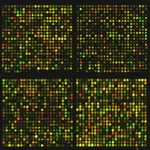
How AI is Transforming Chemical Discoveries and Material Development
December 17, 2024Artificial Intelligence (AI) is revolutionizing a wide range of industries, and the chemical sciences are no exception. From accelerating the pace of discovery to enhancing the efficiency of material development, AI-based techniques are proving to be indispensable. By leveraging high-performance computing, virtual screening, and automated robotics, AI is helping chemists and material scientists push the boundaries of innovation. In this blog post, we will explore how AI is reshaping chemical discoveries and material development, the challenges it faces, and the ways it is transforming chemistry education.
The Role of AI in Accelerating Chemical Discoveries
AI’s influence on chemical research is profound and multi-faceted. One of the most significant ways AI contributes to the field is by aiding in the analysis of large datasets. In chemical research, vast amounts of data are generated, often in the form of experimental results, molecular properties, and reaction mechanisms. AI algorithms excel at identifying patterns in this data, which may be too complex for humans to discern. Through these analyses, AI can suggest novel materials and compounds with desirable properties, opening up new avenues for research and development.
Additionally, AI is making waves in automating experimentation. Traditionally, chemical experiments have been time-consuming and labor-intensive. However, with AI, researchers can now automate the testing of multiple hypotheses simultaneously, drastically increasing the speed at which new discoveries can be made. By controlling robotic systems that conduct experiments and collect data, AI is enabling more efficient and productive workflows.
Another major contribution of AI to chemical sciences is predictive modeling. Machine learning (ML) models can predict the properties of new materials or molecules, saving time and resources by reducing the need for expensive and time-consuming physical experiments. These predictive models allow researchers to explore a broader chemical space, uncovering promising candidates for further study.
Moreover, AI’s ability to optimize experimental parameters further improves the efficiency of research. By suggesting the most promising paths and refining experimental designs, AI helps scientists make the best use of their resources and accelerates their progress.
AI is also aiding the integration of diverse types of data. By combining computational simulations with experimental results, AI offers a holistic view of chemical systems. This integration leads to a deeper understanding of chemical processes and facilitates the discovery of innovative materials and compounds. In some cases, AI even helps explore entirely new concepts, such as stabilizing complex molecular structures or discovering novel spin states in chemical systems.
Key Challenges in AI-Driven Chemical Science
Despite the promise AI holds for accelerating chemical discoveries, there are several significant challenges that researchers face. The first and foremost challenge is data quality and diversity. While there are large chemical databases like USPTO and Reaxys, these resources often suffer from low-quality or biased data. For example, reaction databases tend to favor successful experiments, leaving out failed attempts that could provide valuable insights. This lack of diversity in the data limits the effectiveness of AI models, hindering the discovery of truly novel chemical systems.
Furthermore, data accessibility remains an issue. Databases are often not user-friendly, especially for interdisciplinary researchers who may not have a deep background in chemistry. Making these databases more accessible and intuitive is crucial for enabling a wider range of scientists to engage with the data and apply AI techniques effectively.
Data standardization is another significant hurdle. Inconsistent data formats and a lack of standardization in chemical databases can complicate AI-driven research. Ensuring that data is well-organized, properly labeled, and consistently formatted is essential for the development of reliable AI models.
AI also faces challenges in organic synthesis, where purely data-driven approaches are limited by the quality and diversity of available reaction data. New methods of data featurization, including considering stereochemistry and long-range interactions, are needed to improve the performance of AI models in organic chemistry.
Finally, there is a gap in data for non-equilibrium chemical states. While equilibrium structures are well-documented, data for dynamic and reactive systems remains scarce. This lack of data makes it difficult to model complex chemical reaction pathways and predict real-time behaviors in materials and reactions.
Incorporating AI into Chemistry Education
As AI continues to reshape the chemical sciences, it is crucial to integrate AI, machine learning, and autonomous research into chemistry curricula. The ASLLA Symposium proposed several strategies for incorporating these technologies into undergraduate and graduate education.
One of the primary challenges in AI education for chemistry is the rapid pace of technological advancement. With new machine learning tools and software emerging regularly, it can be overwhelming for students to keep up. To address this, educators emphasize focusing on core skills, such as programming and data analysis, rather than trying to cover every new tool and technique.
The integration of AI into chemistry education also requires balancing trade-offs in curriculum design. For instance, some institutions may opt to replace traditional math-heavy components with computational assignments focused on data analysis and machine learning. This shift may lead to some resistance, but it is necessary to prepare students for the future of chemical science.
To further enhance AI education, institutions are exploring alternatives such as summer bootcamps for coding and experiential learning opportunities. Remote access to laboratory equipment and the use of low-cost automation kits help students develop hands-on experience with AI-driven tools. Additionally, the use of digital twin simulations and virtual reality (VR) in the classroom allows students to better visualize and understand complex chemical processes.
Preparing the Next Generation of Chemists
AI education is not only about enhancing students’ technical skills but also about changing how they approach problem-solving. Rather than memorizing facts, students are taught to think critically, analyze data, and make informed decisions based on information at their disposal. This shift aligns with today’s students’ perspectives on knowledge, which is viewed as the ability to access and apply information, rather than simply retain it.
AI education also highlights the evolving role of chemists. As more industries seek professionals with strong programming backgrounds, chemistry students with AI expertise will be in high demand. By equipping future chemists with the skills to work alongside AI and machine learning, we can foster a generation of researchers who can accelerate innovation and tackle complex global challenges.
Furthermore, AI education helps improve the public perception of chemistry by promoting the importance of chemists in solving pressing issues such as climate change and space exploration. Through AI, chemists can unlock new opportunities for sustainable development, green chemistry, and resource management.
Conclusion
AI is undeniably transforming the landscape of chemical discoveries and material development. By automating experiments, analyzing vast datasets, and enabling predictive modeling, AI is accelerating the pace of innovation in chemical sciences. However, there are still challenges to overcome, including data quality, accessibility, and integration. The future of chemistry lies in embracing AI education, modernizing curricula, and equipping students with the tools to navigate this rapidly evolving field. With AI, the future of chemical research holds immense potential, and the next generation of chemists will be at the forefront of these groundbreaking discoveries.


















